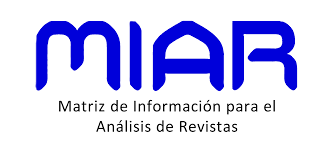The COVID-19 Pandemic and the Food System: From Health Emergency to Economic Crisis
DOI:
https://doi.org/10.18004/mem.iics/1812-9528/2024.e22112401Abstract
The COVID-19 pandemic has exposed the deep-seated vulnerabilities and inequalities in our global food systems. While the immediate health crises have subsided, the economic repercussions of the pandemic continue to affect populations worldwide, particularly the most vulnerable(1). What does the future hold? What could be the implications for agri-food systems?
The COVID-19 pandemic caused unprecedented disruptions in global food supply chains(2). Mobility restrictions, border closures, and social distancing measures impacted food production, processing, transportation, and distribution(3). These disruptions resulted in shortages of agricultural inputs, as farmers faced difficulties obtaining seeds, fertilizers, and other essential supplies due to transportation and logistical interruptions(4). Delays in production occurred as movement restrictions and labor shortages impacted the planting, harvesting, and processing of agricultural products(5). Transportation disruptions caused by border closures and mobility restrictions made it difficult to transport food to markets, leading to shortages and price increases(6). Another significant aspect was the closure of businesses and job losses, which led to a decline in incomes and an increase in food insecurity(7,8), this forced many people to rely on food banks and other forms of food assistance(9,10). Another significant aspect was the sustained increase in food fraud as a consequence of all the previously mentioned factors(11).
These events prompted various responses to the disruptions in food supply. Among them was the diversification of distribution channels. Some agri-food companies responded to the contraction of national and international markets by diversifying their distribution methods, selling packaged products instead of whole commodities, or producing value-added products(12–14). Another important aspect was the increase in automation, as some companies viewed it to reduce vulnerability to future crises and enhance efficiency. However, this shift also entails a reduction in employment opportunities for families(12). It is important to highlight that the pandemic exposed existing inequities in access to nutritious and affordable food(15). Marginalized populations, including low-income households, minorities, and those in rural areas, were disproportionately affected by supply chain disruptions and rising food prices(15–17). In particular, vulnerable populations such as low-income households, women, children, and the elderly were severely affected(17). Furthermore, the pandemic also exacerbated gender inequalities, as women, who often bear the primary responsibility for caregiving and food security, faced greater challenges(18).
Downloads
References
1. Schusler T. Responses to the Impacts of COVID-19 Reclaiming the Food System : Learning from Community Responses to the Impacts of COVID-19. 2022.
2. Dudek M, Śpiewak R. Effects of the COVID-19 Pandemic on Sustainable Food Systems: Lessons Learned for Public Policies? The Case of Poland. Agric. 2022;12(1).
3. Engemann H, Jafari Y. COVID-19 and changes in global agri-food trade. Q Open. 2022;2(1):1–26.
4. Ben Hassen T, El Bilali H. Three years into the pandemic: Insights of the COVID-19 impacts on food security and nutrition in low and middle-income countries. Heliyon [Internet]. 2024;10(7):e28946. Available from: https://doi.org/10.1016/j.heliyon.2024.e28946
5. MERCOSUR. Reglamento Técnico MERCOSUR para Rotulación de Alimentos Envasados [Internet]. 2003. p. 13. Available from: https://normas.mercosur.int/simfiles/normativas/13541_RES_026-2003_ES_FERR_RTM%20Rotulaci%C3%B3n%20Alimentos.pdf
6. Hassan HF, Rizk Y, Chalak A, Abiad MG, Mattar L. Household food waste generation during COVID-19 pandemic and unprecedented economic crisis: The case of Lebanon. J Agric Food Res [Internet]. 2023;14(August):100749. Available from: https://doi.org/10.1016/j.jafr.2023.100749
7. Wolfson JA, Leung CW. Food insecurity during covid-19: An acute crisis with long-term health implications. Am J Public Health. 2020;110(12):1763–5.
8. Haque MK, Zaman MRU, Rahman MA, Hossain MY, Shurid TI, Rimi TA, et al. A review on impacts of COVID-19 on global agricultural system and Scope for Bangladesh after pandemic. Environ Sci Pollut Res [Internet]. 2022; 29(36): 54060–71. Available from: https://doi.org/10.1007/s11356-022-21016-0
9. Boughton D, Goeb J, Lambrecht I, Headey D, Takeshima H, Mahrt K, et al. Impacts of COVID-19 on agricultural production and food systems in late transforming Southeast Asia: The case of Myanmar. Agric Syst [Internet]. 2021;188(September 2020):103026. Available from: https://doi.org/10.1016/j.agsy.2020.103026
10. Coluccia B, Agnusdei GP, Miglietta PP, De Leo F. Effects of COVID-19 on the Italian agri-food supply and value chains. Food Control [Internet]. 2021;123(January):107839. Available from: https://doi.org/10.1016/j.foodcont.2020.107839
11. Frera M, Elahi S. Has COVID-19 caused a significant increase in observed food fraud incidents ?
12. Coopmans I, Bijttebier J, Marchand F, Mathijs E, Messely L, Rogge E, et al. COVID-19 impacts on Flemish food supply chains and lessons for agri-food system resilience. Agric Syst [Internet]. 2021;190(March):103136. Available from: https://doi.org/10.1016/j.agsy.2021.103136
13. Espitia A, Ruta M, Rocha N. Covid-19 and Food Protectionism The Impact of the Pandemic and Export Restrictions on World Food Markets [Internet]. 2020. Available from: https://papers.ssrn.com/sol3/papers.cfm?abstract_id=3605887
14. Benítez M, Velasco C, Rita A, Henríquez J, Menezes FM, Paolucci F. Responses to COVID-19 in five Latin American countries. Heal Policy Technol. 2020;9:525–59.
15. Kharroubi S, Naja F, Diab-El-harake M, Jomaa L. Food insecurity pre-and post the covid-19 pandemic and economic crisis in lebanon: Prevalence and projections. Nutrients. 2021;13(9):1–15.
16. Thilmany D, Canales E, Low SA, Boys K. Local Food Supply Chain Dynamics and Resilience during COVID-19. Appl Econ Perspect Policy. 2021;43(1):86–104.
17. Kazancoglu Y, Sezer MD, Ozbiltekin-Pala M, Lafçı Ç, Sarma PRS. Evaluating resilience in food supply chains during COVID-19. Int J Logist Res Appl [Internet]. 2024; 27(5): 688–704. Available from: https://doi.org/10.1080/13675567.2021.2003762
18. Power M, Doherty B, Pybus K, Pickett K. How COVID-19 has exposed inequalities in the UK food system: The case of UK food and poverty. Emerald Open Res. 2020;2:11.
19. Kumar P, Singh SS, Pandey AK, Singh RK, Srivastava PK, Kumar M, et al. Multi-level impacts of the COVID-19 lockdown on agricultural systems in India: The case of Uttar Pradesh. Agric Syst [Internet]. 2021;187(September 2020):103027. Available from: https://doi.org/10.1016/j.agsy.2020.103027
20. Kumar P, Kumar Singh R. Strategic framework for developing resilience in Agri-Food Supply Chains during COVID 19 pandemic. Int J Logist Res Appl [Internet]. 2022;25(11):1401–24. Available from: https://doi.org/10.1080/13675567.2021.1908524
21. Colmán Benítez KB, Yampey Díaz OT. Ollas populares en el Paraguay de la pandemia COVID-19: apuntes para una tipología. Kera Yvoty reflexiones sobre la cuestión Soc. 2020;5(esp.):13–22.
22. Congreso de la Nación Paraguaya. Ley No 6603 de apoyo y asistencia a las ollas populares organizadas en todo el territorio de la república del Paraguay durante la pandemia declarada por la organización mundial de la salud a causa del covid-19 [Internet]. Ley 6303. 2020. p. 3. Available from: https://www.bacn.gov.py/leyes-paraguayas/9365/ley-n-6603-de-apoyo-y-asistencia-a-las-ollas-populares-organizadas-en-todo-el-territorio-de-la-republica-del-paraguay-durante-la-pandemia-declarada-por-la-organizacion-mundial-de-la-salud-a-causa-del-covid-19
23. Lopez-Ridaura S, Sanders A, Barba-Escoto L, Wiegel J, Mayorga-Cortes M, Gonzalez-Esquivel C, et al. Immediate impact of COVID-19 pandemic on farming systems in Central America and Mexico. Agric Syst [Internet]. 2021;192:103178. Available from: https://doi.org/10.1016/j.agsy.2021.103178
24. Galanakis CM. The Food Systems in the Era of the Coronavirus (COVID-19) Pandemic Crisis. Foods [Internet]. 2020 Apr 22 [cited 2020 Aug 29];9(4):523. Available from: https://www.mdpi.com/2304-8158/9/4/523
25. Nasereldin YA, Brenya R, Bassey AP, Ibrahim IE, Alnadari F, Nasiru MM, et al. Is the Global Food Supply Chain during the COVID-19 Pandemic Resilient? <br/>A Review Paper. Open J Bus Manag. 2021;09(01):184–95.
26. Popescu GC, Popescu M. COVID-19 pandemic and agriculture in Romania: effects on agricultural systems, compliance with restrictions and relations with authorities. Food Secur [Internet]. 2022;14(2):557–67. Available from: https://doi.org/10.1007/s12571-021-01239-8
27. Weersink A, von Massow M, Bannon N, Ifft J, Maples J, McEwan K, et al. COVID-19 and the agri-food system in the United States and Canada. Agric Syst [Internet]. 2021;188(December 2020):103039. Available from: https://doi.org/10.1016/j.agsy.2020.103039
28. Zhan Y, Chen KZ. Building resilient food system amidst COVID-19: Responses and lessons from China. Agric Syst [Internet]. 2021; 190 (January 2020): 103102. Available from: https://doi.org/10.1016/j.agsy.202.103102
29. Ministerio de Relaciones Exteriores del Paraguay. COVID-19: El Poder Ejecutivo promulgó la Ley de Emergencia que establece medidas administrativas, fiscales y financieras [Internet]. Noticias. 2020. Available from: https://www.mre.gov.py/index.php/noticias-de-embajadas-y-consulados/covid-19-el-poder-ejecutivo-promulgo-la-ley-de-emergencia-que-establece-medidas-administrativas-fiscales-y-financieras
30. Congreso de la Nación Paraguaya. Ley No 6809 / Establece Medidas Transitorias De Consolidación Económica Y De Contención Social, Para Mitigar El Impacto De La Pandemia Del Covid-19 O Coronavirus [Internet]. Asunción, Paraguay; 2021. Report No.: 6809. Available from:
31. Adelodun B, Yusuff K, Kumar P, Kumar V, Choi S, Kumar K, et al. Understanding the impacts of the COVID-19 pandemic on sustainable agri-food system and agroecosystem decarbonization nexus : A review. J Clean Prod [Internet]. 2021; 318 (July): 128451. Available from: https://doi.org/10.1016/j.jclepro.2021.128451
32. Frank M, Kaufmann B, Ejarque M, Lamaison MG, Nessi MV, Amoroso MM. Changing Conditions for Local Food Actors to Operate Towards Agroecology During the COVID-19 Pandemic. 2022;6(June).
33. Geng J, Haq SU, Abbas J, Ye H, Shahbaz P, Abbas A, et al. Survival in Pandemic Times: Managing Energy Efficiency, Food Diversity, and Sustainable Practices of Nutrient Intake Amid COVID-19 Crisis. Front Environ Sci. 2022;10(July):1–16.
34. OECD. A Multi-dimensional Approach to the Post-COVID-19 World for Paraguay [Internet]. Paris; 2024. 153 p. Available from: https://www.oecd.org/en/publications/a-multi-dimensional-approach-to-the-post-covid-19-world-for-paraguay_30fea9fe-en.html
35. Kakaei H, Nourmoradi H, Bakhtiyari S, Jalilian M, Mirzaei A. Effect of COVID-19 on food security, hunger, and food crisis [Internet]. COVID-19 and the Sustainable Development Goals. Elsevier Inc.; 2022. 3–29 p. Available from: https://dx.doi.org/10.1016/B978-0-323-91307-2.00005-5
36. Khojasteh D, Davani E, Shamsipour A, Haghani M, Glamore W. Climate change and COVID-19: Interdisciplinary perspectives from two global crises. Sci Total Environ [Internet]. 2022;844(June):157142. Available from: https://doi.org/10.1016/j.scitotenv.2022.157142
37. Mugabe PA, Renkamp TM, Rybak C, Mbwana H, Gordon C, Sieber S, et al. Governing COVID-19: analyzing the effects of policy responses on food systems in Tanzania. Agric Food Secur [Internet]. 2022;11(1):1–13. Available from: https://doi.org/10.1186/s40066-022-00383-4
38. James TY, Kauff F, Schoch CL, Matheny PB, Hofstetter V, Cox CJ, et al. Reconstructing the early evolution of Fungi using a six-gene phylogeny. Nat 2006 4437113 [Internet]. 2006 Oct 19 [cited 2022 Nov 21];443 (7113): 818–22. Available from: https://www.nature.com/articles/nature05110
39. Kumareswaran K, Jayasinghe GY. Systematic review on ensuring the global food security and covid-19 pandemic resilient food systems: towards accomplishing sustainable development goals targets. Discov Sustain [Internet]. 2022;3(1). Available from: https://doi.org/10.1007/s43621-022-00096-5
40. Raptou E, Mattas K, Tsakiridou E, Baourakis G. Assessing the Aftermath of COVID-19 Outbreak in the Agro-Food System: An Exploratory Study of Experts’ Perspectives. Front Nutr. 2022; 9 (April): 1–19.
41. Snow V, Rodriguez D, Dynes R, Kaye-Blake W, Mallawaarachchi T, Zydenbos S, et al. Resilience achieved via multiple compensating subsystems: The immediate impacts of COVID-19 control measures on the agri-food systems of Australia and New Zealand. Agric Syst [Internet]. 2021; 187 (September 2020): 103025. Available from: https://doi.org/10.1016/j.agsy.2020.103025















